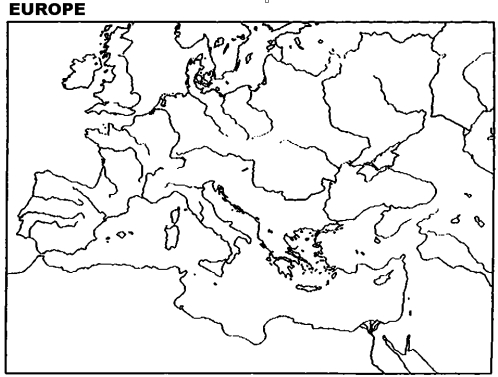Exam 3: The Greek City-State: Democratic Politics
Exam 1: The Ancient Near East: the First Civilizations87 Questions
Exam 2: The Hebrews: a New View of God and the Individual92 Questions
Exam 3: The Greek City-State: Democratic Politics78 Questions
Exam 4: Greek Thought: From Myth to Reason77 Questions
Exam 5: The Hellenistic Age: Cultural Diffusion79 Questions
Exam 6: The Roman Republic: City-State to World Empire76 Questions
Exam 7: The Roman Empire: a World-State91 Questions
Exam 8: Early Christianity: a World Religion79 Questions
Exam 9: The Heirs of Rome: Byzantium, Islam, and Latin Christendom97 Questions
Exam 10: The High Middle Ages: Vitality and Renewal83 Questions
Exam 11: The Flowering of Medieval Culture: the Christian Synthesis78 Questions
Exam 12: The Late Middle Ages: Crisis and Dissolution77 Questions
Exam 13: The Renaissance: Transition to the Modern Age89 Questions
Exam 14: The Reformation: the Shattering of Christian Unity85 Questions
Exam 15: European Expansion: Economic and Social Transformations89 Questions
Exam 16: The Rise of Sovereignty: Transition to the Modern State85 Questions
Exam 17: The Scientific Revolution: the Universe Seen As a Mechanism85 Questions
Exam 18: The Age of Enlightenment: Reason and Reform89 Questions
Select questions type
The reputation of Cleisthenes rests upon his work as
Free
(Multiple Choice)
4.9/5  (35)
(35)
Correct Answer:
B
Which of the following statements about slavery in ancient Greece is false?
(Multiple Choice)
4.8/5  (32)
(32)
Instructions: Please write a thorough, well-organized essay to answer each question.
-Explain ancient Greek religion.How does it compare with Hebrew religion?
(Essay)
4.9/5  (30)
(30)
Instructions: Please write a thorough, well-organized essay to answer each question.
-The Greeks developed an understanding of what it means to be human that had a lasting impact on the Western tradition.Explain that vision of humanity.(Please note that Chapter 3 only begins to discuss this topic.)
(Essay)
4.7/5  (32)
(32)
Instructions: Please write a thorough, well-organized essay to answer each question.
-How were Athenian views of democracy, human rights, and freedom different from those prevalent in contemporary America?
(Essay)
4.8/5  (36)
(36)
Instructions: Please use this outline map of Europe to answer the question(s).  -Locate and clearly mark Greece.Shade in areas colonized by the Greeks.
-Locate and clearly mark Greece.Shade in areas colonized by the Greeks.
(Short Answer)
4.9/5  (37)
(37)
Greeks warmed against the danger of excessive pride, which they called
(Multiple Choice)
4.8/5  (27)
(27)
Which of the following was not one of the distinctive features of Spartan society?
(Multiple Choice)
4.9/5  (31)
(31)
Which of the following statements did Pericles not make in his famous oration?
(Multiple Choice)
4.7/5  (37)
(37)
Instructions: Please define the following key terms.Show Who? What? Where? When? Why Important?
-tyranny
(Short Answer)
4.8/5  (41)
(41)
The author concludes that the political history of the Greeks during the period of the polis reveals that
(Multiple Choice)
4.8/5  (41)
(41)
Instructions: Please define the following key terms.Show Who? What? Where? When? Why Important?
-Mycenaeans
(Short Answer)
4.7/5  (35)
(35)
Instructions: Please define the following key terms.Show Who? What? Where? When? Why Important?
-cult of Dionysus
(Short Answer)
4.8/5  (27)
(27)
Instructions: Please define the following key terms.Show Who? What? Where? When? Why Important?
-Pericles
(Essay)
4.9/5  (32)
(32)
Showing 1 - 20 of 78
Filters
- Essay(0)
- Multiple Choice(0)
- Short Answer(0)
- True False(0)
- Matching(0)